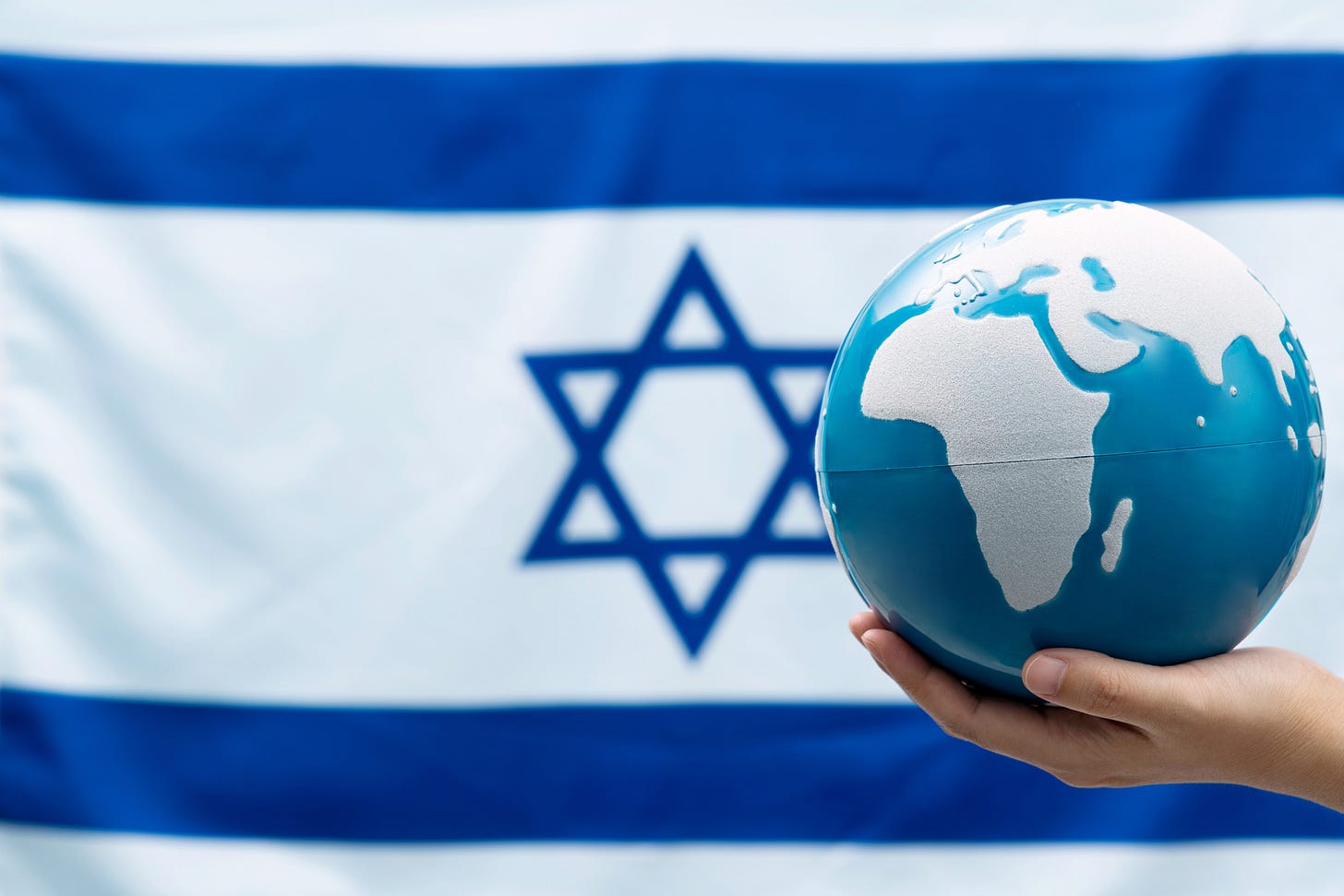Where Will It End? And What's On the Other Side?
"Suddenly, she stopped and crouched down to pen yet another missive. As I passed by, I wondered what she had written. Was it another reminder to repent? To know that God loves me?"
By Abigail Pickus
The hand-written signs were all still there, clearly visible for anyone who passed by on Sheridan Road: “Disclose, Divest, We Will Not Rest,” “Free Gaza,” “Stop Funding Genocide.”
Notably absent: Any signs calling for the release of the hostages or even one — one! — mentioning Hamas. I’m not even talking about holding them responsible.
These remnants of the pro-Palestinian encampment at Northwestern University, already shut down by President Michael Schill who quickly capitulated to students’ demands, is a drama playing out on campuses around the globe, much to the fear and dismay of Jews everywhere. (Except for the Jews leading the protests!)
Which is exactly what Yahya Sinwar wants. The Hamas chief, who continues to call the shots from his subterranean hideout deep below Gaza, is no doubt deeply pleased that he has all these unexpected ambassadors in the West. Buffered from harm first by a surrounding layer of Israeli hostages and then by his own people – left intentionally vulnerable and unprotected –- he is waiting for his ultimate goal: The annihilation of Israel and the destruction of the Jewish people.
It would be easy to blame only Sinwar and his cronies and even his proxies, all of the woke college students and their ardent professors who accuse Israel not only of colonialism but also of white supremacy. But Netanyahu and his far-right ministers are not beyond reproach, maybe not for sins of commission – but certainly for sins of omission.
First, they did not believe the young female soldiers who correctly identified suspicious activity in Gaza before the Oct. 7 massacre, and because of that they exposed their own people to the worst massacre since the Holocaust. Since then, it seems that they have prolonged the war by arguing, posturing, and vowing to eliminate Hamas (which, considering how many are hiding among innocent Palestinians, is arguably not possible). The most egregious act is putting roadblocks before a hostage deal that is long overdue and could finally, at long last, bring our people home!
But just when the headlines declare that Hamas has accepted a ceasefire and it seems we can try to put this all behind us, it turns out Hamas is playing games, sneakily changing the conditions so that what they agreed to was not, in fact, what was put before them. And meanwhile, the IDF pushes towards the Rafah Crossing, demonstrators storm the streets accusing Netanyahu of abandoning the hostages, and this terrible, awful mess continues…
This isn’t to say that I don’t believe in Israel’s absolute right to defend itself. As a proud Jew and a staunch Zionist, and as a person with dual American-Israel citizenship, my support is steadfast. But there is leadership and then there is leadership, and those currently at the helm are not suited to continue leading this great nation.
So here we are, stuck between a rock and a horrible place. The more Palestinians suffer and die, the more the world views Israel as the evil perpetrator. And the more Israel is condemned, the more antisemitism is permitted to fester and flourish.
It’s all too much.
When, when, will we all just live in peace?
Because even though polls indicate fewer Israelis now feel positive about the possibility of a two-state solution, I still do believe that at the end of the day, most Jews and Arabs ultimately desire peace.
The Hebrew word for peace, shalom, comes from the root Shalem (שלם), which means completion or whole. At its core that is what peace is: a feeling of ease, of centeredness, of all-is-right-in-the-world. At the same time, the word ‘shalem’ also means “to pay” in Hebrew,
presumably because it is making something whole. It’s a curious juxtaposition: On one hand there is a self-contained entity of perfect wholeness and on the other hand, there is something lacking, something you owe.
It's a reminder of just how precarious peace really is. And how what seems at peace can turn on a dime.
As I was ruminating about all of this, a funny thing happened. On my walk to the train, it seemed like every step I took, there was something written in chalk on the sidewalk about God, often with the word “Repent!” in all caps.
I didn’t think much of it until I realized that the admonitions continued long after I had crossed a busy street and had gotten farther and farther away from the first message. It was almost like the scribblings were appearing miraculously every block or so, right on my footpath.
It turns out they were, because as I glanced ahead, I saw her. A little woman dressed in a trench coat and a red bucket hat, she was carrying a shopping bag that I realized contained the only thing a modern-day prophet needs: chalk. And divine inspiration, of course.
Suddenly, she stopped and crouched down to pen yet another missive. As I passed by, I wondered what she had written. Was it another reminder to repent? To know that God loves me?
But she surprised me.
“Love your neighbor,” she wrote in big green lettering. She’s referring, of course, to the original Golden Rule: “Love your neighbor as yourself,” from the Book of Leviticus.
I couldn’t think of a more apt and more timely way to put it.
ABIGAIL PICKUS has written for JUF News Chicago, the Jewish Agency for Israel and The Jewish Week. She ran the Nextbook literary series at the Chicago Public Library.
From navigating the nuances of family and relationships to unpacking history and politics to finding the human angle on sports and entertainment — plus our unsparing take on what’s happening in the Jewish world — the canvas at JEWDICIOUS is limitless!





